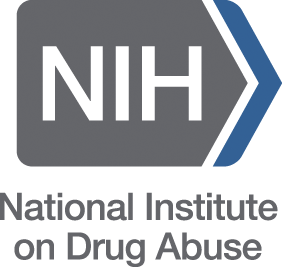Teen Suicide: Understanding the Risk and Getting Help
 Teenagers have their whole lives ahead of them, they’re often told. The idea that a teen could be thinking about ending that life might be hard for their friends, families, or other people in their community to believe.
Teenagers have their whole lives ahead of them, they’re often told. The idea that a teen could be thinking about ending that life might be hard for their friends, families, or other people in their community to believe.
But the risk of suicide should be on the radar of anyone who interacts with teens, says Dr. Jane Pearson, a mental health expert at NIH. Read more ›


 The teenage years are filled with change. Body, mind, and feelings are maturing quickly. Teens are also learning about who they are and who they want to become. To do that, they need to try new things. But that means taking risks.
The teenage years are filled with change. Body, mind, and feelings are maturing quickly. Teens are also learning about who they are and who they want to become. To do that, they need to try new things. But that means taking risks.
 Researchers are releasing data from NIH’s 10-year
Researchers are releasing data from NIH’s 10-year 


 Since 2015, researchers at UCSF Benioff Children’s Hospital clinic have been conducting a study sponsored by the National Institutes of Health that will involve nearly 300 young patients ages 8 to 18 to understand the long-term effects of transgender treatments. These include puberty-blocking hormones, which give patients more time to explore their gender identity, and testosterone and estrogen.
Since 2015, researchers at UCSF Benioff Children’s Hospital clinic have been conducting a study sponsored by the National Institutes of Health that will involve nearly 300 young patients ages 8 to 18 to understand the long-term effects of transgender treatments. These include puberty-blocking hormones, which give patients more time to explore their gender identity, and testosterone and estrogen. 
 This website is a project of the National Institute on Drug Abuse (NIDA), National Institutes of Health (NIH), U.S. Department of Health and Human Services. This site is organized to help you find what you are looking for, whether you are a teen, middle or high school teacher, or parent. The purpose of this site is to facilitate learning about the effects of drug use on the brain, body, and lives of teens.
This website is a project of the National Institute on Drug Abuse (NIDA), National Institutes of Health (NIH), U.S. Department of Health and Human Services. This site is organized to help you find what you are looking for, whether you are a teen, middle or high school teacher, or parent. The purpose of this site is to facilitate learning about the effects of drug use on the brain, body, and lives of teens. 



